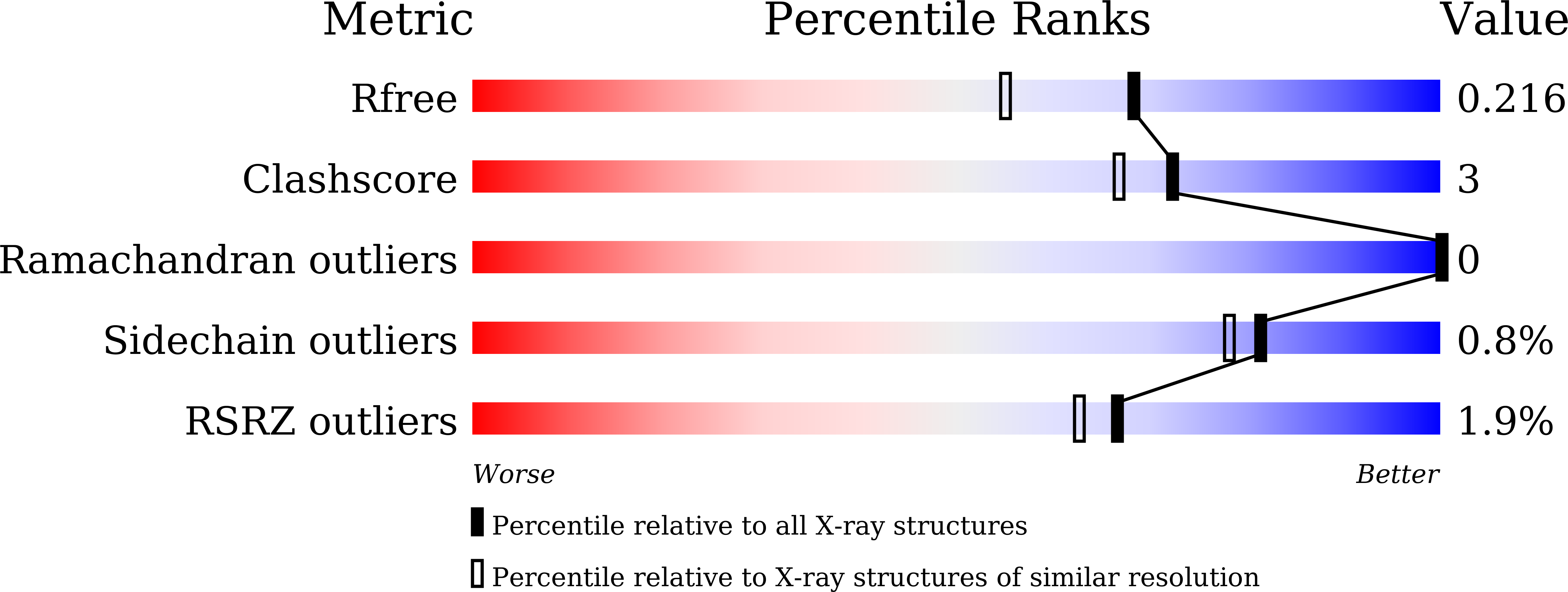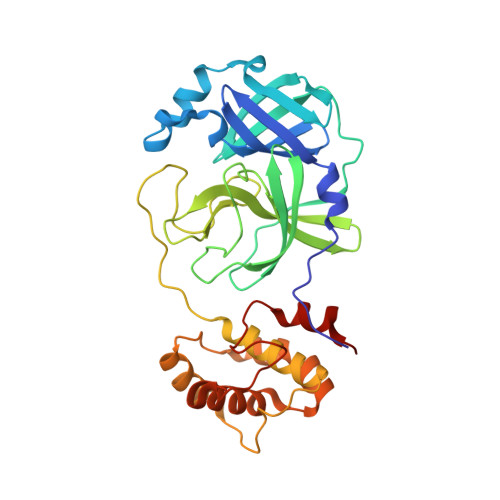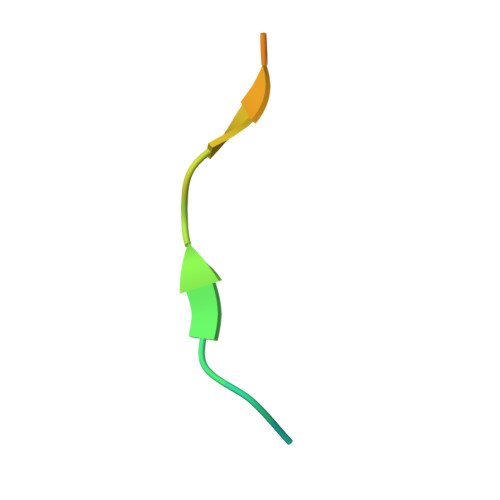Structural basis for replicase polyprotein cleavage and substrate specificity of main protease from SARS-CoV-2.
Zhao, Y., Zhu, Y., Liu, X., Jin, Z., Duan, Y., Zhang, Q., Wu, C., Feng, L., Du, X., Zhao, J., Shao, M., Zhang, B., Yang, X., Wu, L., Ji, X., Guddat, L.W., Yang, K., Rao, Z., Yang, H.(2022) Proc Natl Acad Sci U S A 119: e2117142119-e2117142119
- PubMed: 35380892
- DOI: https://doi.org/10.1073/pnas.2117142119
- Primary Citation of Related Structures:
6M03, 7DVP, 7DVW, 7DVX, 7DVY, 7DW0, 7DW6, 7E5X, 7VAH - PubMed Abstract:
The main protease (Mpro) of severe acute respiratory syndrome coronavirus 2 (SARS-CoV-2) is a key enzyme, which extensively digests CoV replicase polyproteins essential for viral replication and transcription, making it an attractive target for antiviral drug development. However, the molecular mechanism of how Mpro of SARS-CoV-2 digests replicase polyproteins, releasing the nonstructural proteins (nsps), and its substrate specificity remain largely unknown. Here, we determine the high-resolution structures of SARS-CoV-2 Mpro in its resting state, precleavage state, and postcleavage state, constituting a full cycle of substrate cleavage. The structures show the delicate conformational changes that occur during polyprotein processing. Further, we solve the structures of the SARS-CoV-2 Mpro mutant (H41A) in complex with six native cleavage substrates from replicase polyproteins, and demonstrate that SARS-CoV-2 Mpro can recognize sequences as long as 10 residues but only have special selectivity for four subsites. These structural data provide a basis to develop potent new inhibitors against SARS-CoV-2.
Organizational Affiliation:
Shanghai Institute for Advanced Immunochemical Studies, ShanghaiTech University, Shanghai 201210, China.















